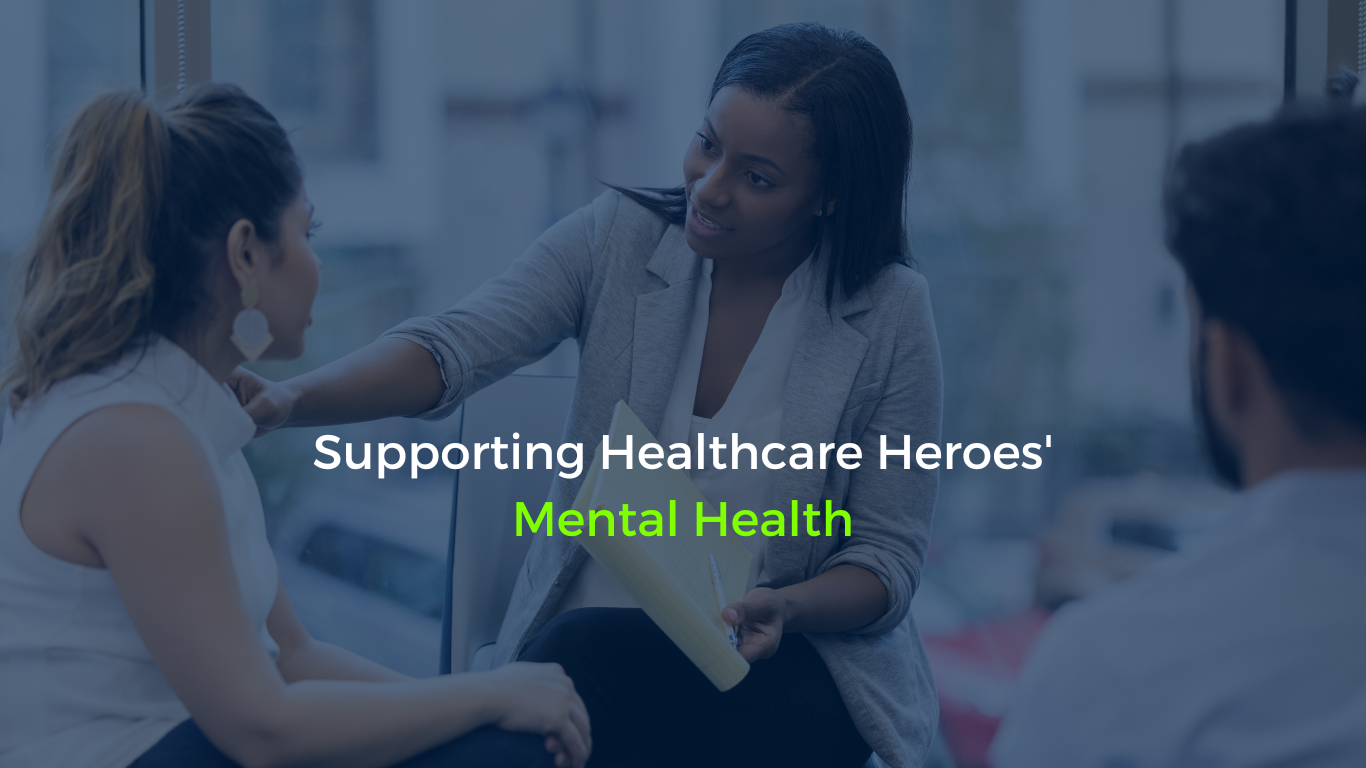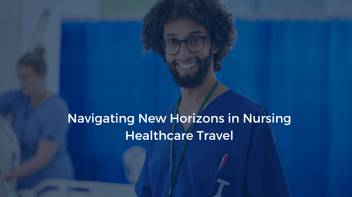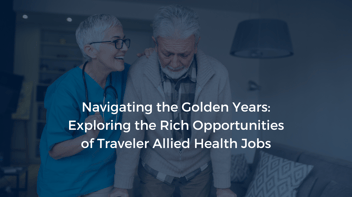When nearly half of US healthcare workers surveyed say they feel clinically depressed, it’s time to find immediate, effective ways to meet the challenge.
Healthcare workers are relied upon to maintain health and save lives throughout every country in the world. Therapists, technicians, nurses and others who support us all are crucial to every human’s well-being. All the more reason to ensure the health and safety of these valued individuals as they often face enormous odds on a daily basis.
The month of May is recognized as Mental Health Awareness Month. To understand more about mental health, let’s take a more in-depth look at the impact of previous challenges, where we are today, and where we need to be.
How We Got Here
Aside from the job at hand which every healthcare worker must do on a daily basis, contributing their knowledge and skills to help patients, they also face the built-in stress that goes with the job. Long work hours are often unavoidable; rotating or irregular shifts that create flux in their work/life balance are all too real; the intense physical demand, not to mention the deep emotional labor that’s not easy to shake off; and the inescapable exposure to human suffering and death all contribute to a healthcare worker’s job.
Although rates of burnout in healthcare trended downward prior to the COVID pandemic, extraordinarily, in the last few years there have been dramatic increases. During the pandemic there was a surge of support and compassion for healthcare workers and rightly so. They were recognized as heroes, serving on the frontline of battling a monstrous health crisis.
Where We Are
Today, the stress of the pandemic challenges is still alive among our venerable healthcare professionals. In a recent publication of Staffing Industry Analysis (SIA), it stated that healthcare workers with clinical depression by generation were: 59% of millennials, 56% of Gen Z and 36% of baby boomers.
Why do healthcare workers not seek mental healthcare?
Many healthcare professionals are reluctant to seek mental health care because of questions on licensing, credentialing and insurance applications. Fearing that any connection to these factors might impair their ability to work or greatly diminish it. As a result, they soldier on, only adding to a volatile scenario and increasing the odds of worsening their own mental health, as well as affecting their ability to provide safe, consistent patient care.
Anders Group Heeds the Call
With the month of May recognized as Mental Health Awareness Month, our attention turns to the urgency of what must be done. While many organizations are taking steps to improve health benefits for their employees, Anders Group is heeding the call to provide a robust Employee Assistance Program (EAP) as part of their existing generous benefits.
The Anders Group EAP provides the following services to its employees and travelers at no cost. EAP benefits are confidential to safeguard employees' privacy and promote trust.
- Face-to-face and virtual counseling—up to 3 visits per employee/household member per year
- Support from counselors when dealing with the loss of a loved one.
- Online modules and coaching—learn, develop, and practice new skills to improve mental fitness; includes a well-being check, online modules selected specifically for you, and up to 3 coaching sessions
- EAP website resources—includes webinars, podcasts, articles, videos, FAQs, etc; additionally connect to a counselor to get resources (they are not therapists), but can set up weekly sessions for you with a referred therapist. This is completely confidential and available 24/7 by phone or online.
- College planning resources—get expert assistance in finding the right college that fits your child academically, socially, and financially, provided by College Planning USA
Work-life assistance and resources to make your life easier:
- Work-life services—unlimited 24/7 access to work-life specialists (subject matter experts) in the areas of family and caregiving, health and wellness, emotional well-being, daily living, balancing work and life responsibilities.
- Child and elder care referral—unlimited telephone consultation with a work-life specialists (part of Work-life services)
Visit worklife.uprisehealth.com for more details. Access code: worklife; Phone: 1-800-385-7055; 24-hour crisis help available. Regular office hours: Monday-Friday 6am-5pm PST
Travel Healthcare with Anders Group
As a viable option for healthcare workers, travel healthcare offers a change of pace for those seeking less stress and more adventure. Some of the stress-related problems can be alleviated through travel healthcare with Anders Group in the following ways:
You have better control—Travel nurses and other healthcare workers have more control over their schedules and can choose assignments based on their preferences for location and length of contract.
You experience more variety and new environments—Working in different hospitals and healthcare facilities, you’re exposed to new practices and technology, new colleagues, and a reduced monotony, fostering professional growth.
You have better financial and healthcare benefits—Higher higher pay rates and benefits packages are a major advantage with Anders Group healthcare travelers.
Consider the options of becoming a Healthcare Traveler with Anders Group. Most of all consider the importance of caring for yourself so that you maintain a healthy state of mind that nurtures your mental health at work, at home, and throughout your life.
Check out the wide range of healthcare travel jobs available with Anders Group. Then tell us…





Leave a Comment